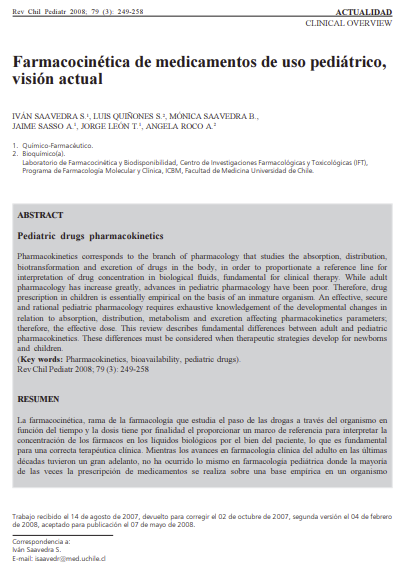Farmacocinética de medicamentos de uso pediátrico, visión actual
Licencia: Creative Commons (by-nc)
Autor(es): Saavedra, Iván
Pharmacokinetics corresponds to the branch of pharmacology that studies the absorption, distribution, biotransformation and excretion of drugs in the body, in order to proportionate a reference line for interpretation of drug concentration in biological fluids, fundamental for clinical therapy. While adult pharmacology has increase greatly, advances in pediatric pharmacology have been poor. Therefore, drug prescription in children is essentially empirical on the basis of an inmature organism. An effective, secure and rational pediatric pharmacology requires exhaustive knowledgement of the developmental changes in relation to absorption, distribution, metabolism and excretion affecting pharmacokinetics parameters; therefore, the effective dose. This review describes fundamental differences between adult and pediatric pharmacokinetics. These differences must be considered when therapeutic strategies develop for newborns and children.
[2008]
Compartir:
Una vez que el usuario haya visto al menos un documento, este fragmento será visible.


